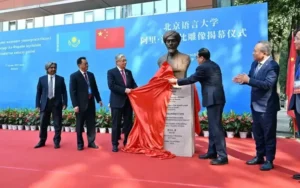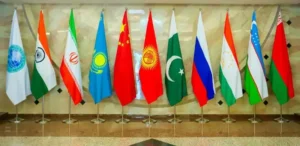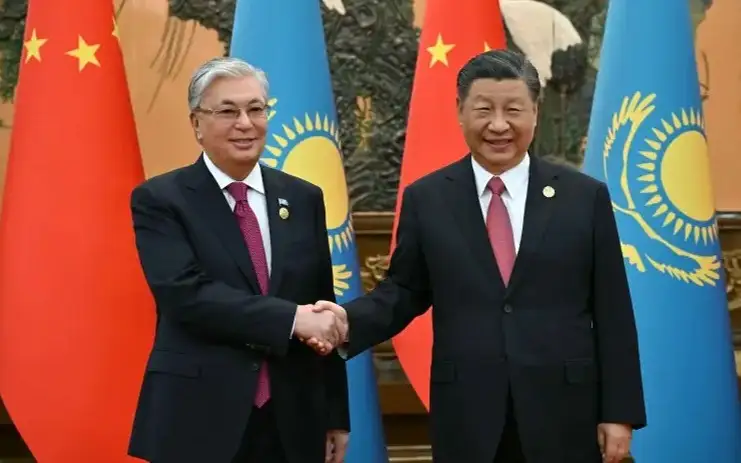WNAM MONITORING: From July 2-4 -2024, at the invitation of the President of the Republic of Kazakhstan, Kassym-Jomart Tokayev, the Chairman of the People’s Republic of China, Xi Jinping, will be on a state visit to Kazakhstan. He will also participate in the 24th meeting of the Council of Heads of State of the Shanghai Cooperation Organization. Recently, in an interview with a correspondent from the newspaper “People’s Daily” the Head of State, Kassym-Jomart Kemeluly, noted that further strengthening of friendship and good-neighborliness with China is a priority. This position fully aligns with the fundamental interests of the peoples of the two countries and contributes to peace and stability in the region.
“Chairman Xi Jinping made his first foreign visit after the pandemic in 2022 specifically to Kazakhstan. For my part, I have visited China three times since last year. Our regular friendly contacts are a solid foundation for the progressive development of interstate relations, which are now entering another “golden 30 years.” I fondly remember our meetings with my friend – the respected Chairman Xi Jinping. We always discuss current issues in an open and trusting atmosphere, exchanging views on the international agenda. It can be said that such a regular format of communication allows us to understand each other implicitly, which is very important for strengthening the bonds of friendship between our peoples,” said Kassym-Jomart Tokayev in an interview with a Chinese newspaper.
The Head of State noted that the level of relations between the two countries was elevated to a comprehensive strategic partnership in 2019. China is Kazakhstan’s largest external trade and economic partner. By the end of 2023, bilateral trade increased by 30%, reaching $41 billion. Currently, dozens of large priority projects have been successfully implemented in the oil and gas, chemical, metallurgical, agro-industrial, mining, and other sectors.
The positions of the two countries are similar on many global and regional agenda issues, and we coordinate our efforts within international organizations and multilateral structures, including the UN, SCO, CICA, and the Central Asia-China dialogue.
“Kazakh-Chinese cooperation can be considered a positive example of interstate relations,” said Kassym-Jomart Tokayev.
The Belt and Road Initiative was first announced on Kazakh soil.
“Kazakhstan has a convenient geographical location at the junction of the shortest land routes connecting Asia and Europe. Recognizing the strategic depth and the revival effect of the historical Great Silk Road, Kazakhstan was the first to fully support this truly ambitious and promising project,” said the President of Kazakhstan.
According to the Head of State, within the framework of the Belt and Road Initiative, major infrastructure projects have been put into operation, such as the Kazakh-Chinese logistics terminal in the port of Lianyungang, the dry port “Khorgos – Eastern Gate” on the border with China, new infrastructure in the ports of Aktau and Kuryk on the Caspian Sea coast, the Kazakhstan-Turkmenistan-Iran railway corridor, the international transit highway corridor Western Europe – Western China, and a logistics hub in the dry port of Xi’an.
In general, Kazakhstan’s strategic position as a regional transport and logistics hub has been defined. Kassym-Jomart Tokayev noted that since the establishment of diplomatic relations, both countries have paid special attention to cooperation in areas such as education, culture, tourism, science, and technology.
“In February this year, I visited the first “Lu Ban Workshop” created at the East Kazakhstan Technical University named after D. Serikbaev, and I was impressed by the modern laboratories that train highly qualified technical and engineering personnel for Kazakhstan’s automotive industry. We are very interested in expanding the geography of such laboratories in our country,” said the President.
In March of this year, a grand ceremony in Beijing marked the opening of the “Year of Kazakhstan Tourism in China” which is expected to be an important step in developing tourism cooperation.
“As part of the Year of Kazakhstan Tourism, many events will be held in cities and provinces of China to introduce Chinese citizens to the rich Kazakh culture, our traditions, and achievements in the arts,” said Kassym-Jomart Tokayev.
The mutual opening of cultural centers in Kazakhstan and China will give an additional boost to bilateral relations. These centers will become strong bridges of friendship between the peoples of the two countries. In particular, in May 2023, the first “Central Asia-Kazakhstan” summit was held in Xi’an, with the participation of the heads of state.
The President noted that in recent years, economic ties and trade between Central Asian countries and China have successfully developed. Last year alone, China’s trade with Central Asian countries approached $90 billion.
“During the summit, the heads of state made constructive proposals for the further development and deepening of practical cooperation within this framework. I am confident that the strong potential for cooperation laid down in this format will open new opportunities for trade-economic and cultural-humanitarian interaction between the countries of Central Asia and China,” said the President of Kazakhstan.
Over the past years, the Shanghai Cooperation Organization has developed within the framework of the “Shanghai Spirit” increasing its international influence. This year, Kazakhstan holds the rotating chairmanship of the SCO.
“I witnessed the creation of the SCO, participated in negotiations, and helped draft its initial documents. After more than 20 years of development, many countries have joined the “SCO family.” During the summit in Astana, the SCO will welcome its 10th member state,” said the President of Kazakhstan.
The development of the SCO contributes to strengthening stability and prosperity in the region and the world. As a founding member of the Organization and an active supporter of multilateral dialogue, Kazakhstan considers the SCO a permanent priority in its multi-vector foreign policy.
The Head of State also noted that during Kazakhstan’s chairmanship in the SCO, efforts will be directed towards developing common approaches to solving security issues, enhancing trade and economic cooperation, promoting environmental protection, and strengthening ties of friendship between peoples. The SCO should not remain on the sidelines of global processes. That is why Kazakhstan proposed jointly developing the SCO Initiative “On Global Unity for a Just World and Harmony.” This initiative was highly appreciated and supported by the member states.
“We call on the international community to strengthen an objective and open global dialogue, implement innovative security models, create a fair economic environment, and work tirelessly to protect the environment. We believe that the results of the summit will include such fundamental principles of the ‘Shanghai Spirit’ as mutual trust, equality, good neighborliness, mutual consultations, mutual respect for cultures, and the pursuit of joint development,” said Kassym-Jomart Tokayev.
The President of Kazakhstan noted that Chairman of the PRC Xi Jinping proposed the concept of building a community with a shared future for mankind and three major global initiatives. This important concept and initiatives support the core positions of the United Nations in international affairs, calling on states to work together, achieve common goals, and benefit human society.
“In addition, these initiatives are harmonized with the priority directions of SCO development, including openness and inclusiveness, multilateral cooperation, and the principles of respecting the national characteristics of each country,” said Kassym-Jomart Tokayev.
The President of Kazakhstan expressed his anticipation of Chairman Xi Jinping’s visit and the Astana SCO summit. According to Kassym-Jomart Tokayev, the SCO has extensive development prospects. Strengthening multi-level cooperation between Kazakhstan and China will make a significant contribution to the development and growth of the SCO.








